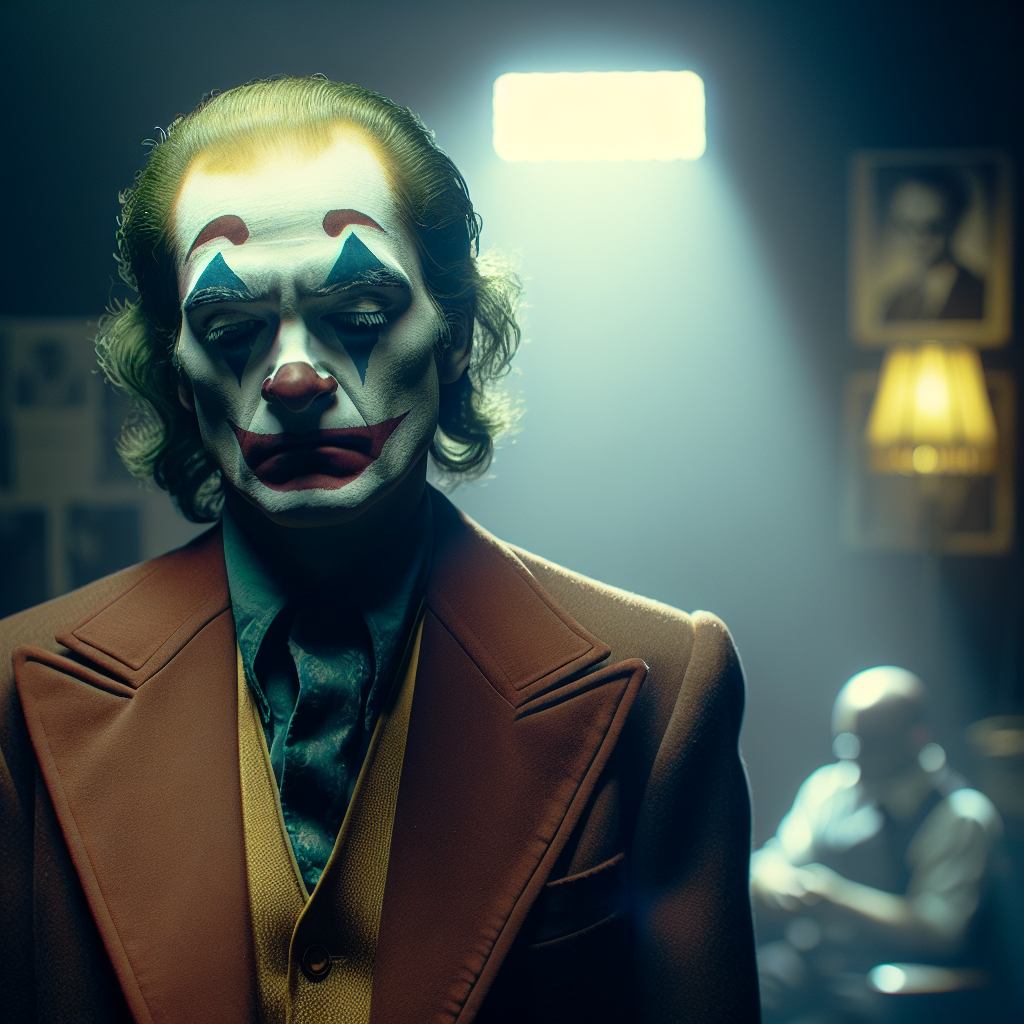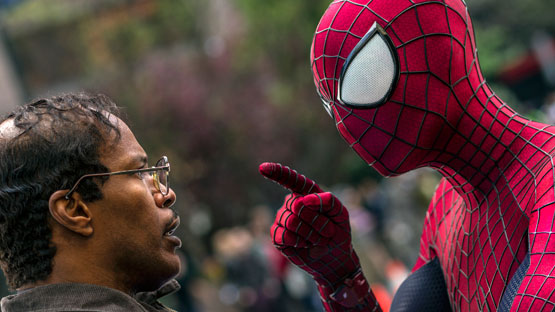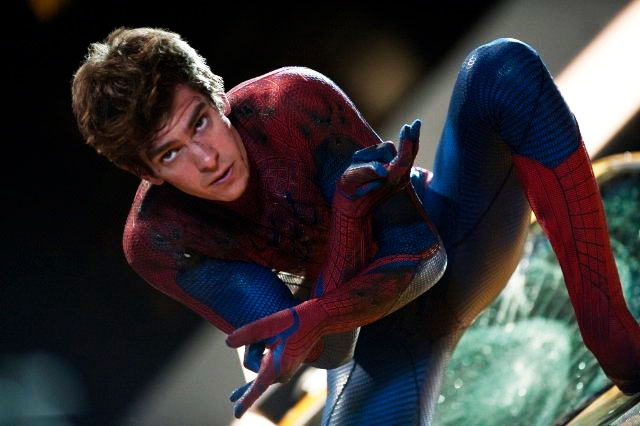Todd Phillips’ “Joker” (2019) bursts forth from the restrictive mold of typical superhero films, pushing the genre’s boundaries with a sobering and unflinching character study. The film offers a chilling vision of Gotham City, serving as both an origin story for one of comic book history’s most notorious villains and a scathing socio-political commentary.
From the outset, “Joker” sets a somber tone, introducing audiences to Arthur Fleck, a man desperately struggling against the relentless tide of societal indifference and personal torment. Joaquin Phoenix’s portrayal of Arthur is a tour de force, bringing to life a character who is both pitiable and terrifying. This Joker does not merely appear; he emerges, transforming from a downtrodden, mentally ill man into the anarchic harlequin of crime we associate with Batman’s arch-nemesis.
One of the film’s critical achievements is its relentless focus on Arthur’s psychology. The story delves deep into his psyche, exposing the fractures and traumas that propel him towards insanity. Phillips and co-writer Scott Silver craft a narrative that is as much about the environments and situations that shape Arthur as it is about Arthur himself. We see flashes of his past, glimpses of his unhealthy relationship with his mother, his marginalized existence, and his futile attempts to bring joy as a clown and comedian. Every aspect of Arthur’s life underscores a brutal truth about humanity’s capacity for cruelty and neglect.
The narrative not only draws its strength from Phoenix’s performance but is fortified through Phillips’ direction. The film is shot with a gritty realism, capturing the decay and disarray of Gotham City which mirrors Arthur’s internal collapse. The cinematography by Lawrence Sher is nothing short of spectacular, creating a visual palette that oscillates between the grim and the grotesque, reinforcing the film’s themes. Hildur Guðnadóttir’s score, a haunting symphony of melancholy and climax, underscores the film’s unsettling atmosphere and Arthur’s descent into madness.
“Joker” leverages its setting as a reflection of societal decay, depicting a city rife with economic disparity, civil unrest, and moral disintegration. The film offers a haunting critique of a world where social services are failing, mental health is neglected, and the wealthy are insulated from the strife of the common populace. This thematic underpinning is not merely a backdrop but is integrally tied to Arthur’s transformation. His journey from victim to villain is not just one of personal collapse but is also an indictment of society’s failures.
The film’s audacious artistic decisions do not solely rely on its dark thematic content but also extend to its structure. Unlike traditional superhero films, “Joker” adopts a slow, methodical pacing, allowing audiences to immerse deeply in Arthur’s world and psyche. This pacing invites viewers to experience every painful twist and turn in Arthur’s journey, making his eventual break into the Joker identity both compelling and horrifying.
However, “Joker” is not without its controversies. The film faced criticism for its graphic violence and its potential to inspire real-world violence. Indeed, Phillips doesn’t shy away from showcasing brutality, but these moments of violence are not gratuitous; instead, they serve to underscore the visceral stakes of Arthur’s transformation and the societal corruption he epitomizes. The film’s unflinching approach to violence is a reflection of its commitment to authenticity, challenging viewers to confront discomforting truths about the human condition and societal structures.
The supporting cast, including Robert De Niro as talk-show host Murray Franklin and Frances Conroy as Arthur’s mother, provide strong performances that elevate the film’s complex narrative. De Niro’s role is particularly notable, drawing a parallel to his earlier work in “The King of Comedy,” while also serving as a crucial catalyst in Arthur’s metamorphosis.
“Joker” is a cinematic experience that lingers long after the credits roll. Its departure from the conventional superhero genre to a domain of dark, psychological drama exemplifies a boldness that is rarely seen in mainstream cinema. Todd Phillips crafts a film that is as disturbing as it is mesmerizing, inviting viewers to reflect on the intricate layers of character and societal critique it presents.
In conclusion, Todd Phillips’ “Joker” is a daring venture that transcends traditional narrative forms to offer a profound, if unsettling, exploration of one of comics’ greatest villains. Through impeccable performances, masterful direction, and poignant social commentary, “Joker” asserts itself not only as a standout film within the genre but as a crucial piece of cinematic artistry.



